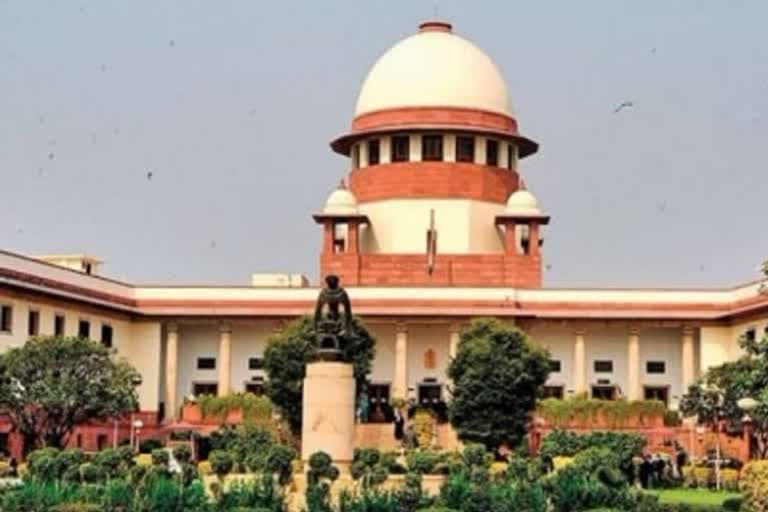New Delhi: The Supreme Court has termed as "utterly incomprehensible" an order of the Madhya Pradesh High Court discharging an accused of the offence of rape essentially on the ground of delay in the registration of the First Information Report (FIR). A bench of justices DY Chandrachud and JB Pardiwala said the facts of this litigation was quite "heart-breaking" and set aside the order of the high court holding that the impugned order could be termed as "perverse and not sustainable in law".
The verdict was pronounced on August 12 but was yet to be uploaded on the apex court website. "At the cost of repetition, we state that the impugned order of the High Court is utterly incomprehensible. We have yet to come across a case where the High Court has thought fit to discharge an accused charged with the offence of rape on the ground of delay in the registration of the FIR," Justice Pardiwala said while writing the judgement on behalf of the bench.
The top court, however, did not interfere with the decision of the trial court of discharging the accused Amit Kumar Tiwari, represented by advocate Swarnendu Chatterjee, from the offence punishable under Section 306 of the IPC (abetment to the commission of suicide). Referring to the high court order dated December 2, 2021, the bench said what is relevant to note is that although the high court has devoted two full paragraphs for the purpose of recording the submissions as regards the age of the deceased (rape victim), yet ultimately no specific finding has been recorded in that regard by the high court.
Also read:Inappropriate advances rejected, 46-year-old Guj man kills teen girl
"The high court proceeded altogether on a different footing. The high court thought fit to discharge the accused of all the charges on the ground that there was delay in lodging the FIR and the entire case put up by the parents of the deceased was doubtful," it said. The bench said the law is well settled that although it is open to a high court entertaining a petition under Section 482 of the CrPC or a revision application under Section 397 of the CrPC to quash the charges framed by the trial court, yet the same cannot be done by weighing the correctness or sufficiency of the evidence.
It said in a case praying for quashing of the charge, the principle to be adopted by the high court should be that if the entire evidence produced by the prosecution is to be believed, would it constitute an offence or not. The top court said it is also well settled that when the petition is filed by the accused for the quashing of charge framed against him, the superior court should not interfere with the order unless there are strong reasons to hold that in the interest of justice and to avoid abuse of the process of the court, a charge framed against the accused needs to be quashed.
